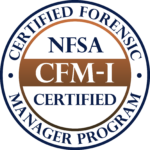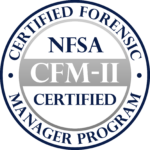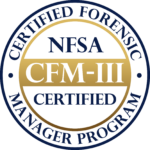Certified Forensic Managers possess all the leadership qualities of an effective manager while maintaining a strong connection to their technical skills.
Lorem ipsum dolor sit amet, cons elit, sed do eiusmod tempor incint ut labore et dolore magna.
Lorem ipsum dolor sit amet, cons elit, sed do eiusmod tempor incint ut labore et dolore magna.
Lorem ipsum dolor sit amet, cons elit, sed do eiusmod tempor incint ut labore et dolore magna.
Lorem ipsum dolor sit amet, cons elit, sed do eiusmod tempor incint ut labore et dolore magna.
Lorem ipsum dolor sit amet, cons elit, sed do eiusmod tempor incint ut labore et dolore magna.
Lorem ipsum dolor sit amet, cons elit, sed do eiusmod tempor incint ut labore et dolore magna.
Lorem ipsum dolor sit amet, cons elit, sed do eiusmod tempor incint ut labore et dolore magna.
Lorem ipsum dolor sit amet, cons elit, sed do eiusmod tempor incint ut labore et dolore magna.
Lorem ipsum dolor sit amet, cons elit, sed do eiusmod tempor incint ut labore et dolore magna.
Each level’s content builds on the concepts of the certification preceding it, creating a progressive certification level system where each certification level should be taken in order from CFM-I to CFM-III, regardless of actual job position or title.
All those who have completed a course from an authorized provider and have passed the appropriate examination, will earn the Certified Forensic Manager credential.

CFM-I (Supervisor) establishes the foundation of leadership competencies providing the knowledge, skills, and abilities of forensic leadership.

CFM-II (Manager) builds on the foundation of Level I leadership competencies to progress to higher levels of responsibility in forensic organizations.

The CFM-III (Director) expands on the foundation of Level II leadership competencies to progress to the highest levels of responsibility in forensic organizations.
The Certified Forensic Manager Program (CFMP) is an NFSA initiative that sets a national standard for the professional development of leaders in crime laboratories, forensic units, medical examiner offices, and coroner offices.
The CFMP is the first and only body to certify forensic science leaders in laboratory management. The CFMP program provides training and education providers with a comprehensive, consensus-based curriculum on which to base training programs. The curriculum is designed for forensic professionals aspiring to be leaders within publicly funded or private laboratories and forensic units in roles such as unit supervisors, managers, and executives. By requiring Authorized Providers to maintain a specific level of topical coverage, the CFMP, offers students a consistent foundation of material and an opportunity to achieve professional certification after successfully completing the training course.
Crime laboratories, forensic units, medical examiner offices, and coroner offices are frequently led by highly skilled technical professionals who excel as practitioners but often lack training in leadership and public sector management. Leadership and management require their own set of knowledge, skills, and abilities which must be kept up through professional development. The 2009 National Academy of Sciences (NAS) report, Strengthening Forensic Science in the United States: A Path Forward, advocates for improved leadership training and details specific gaps for technical leaders and managers (From “Strengthening Forensic Science in the United States: A Path Forward” by the National Research Council of the National Academies, 2009). In addition, according to the Innocence Project, 45% of wrongful convictions are related to the misapplication of forensic science, including improperly applied techniques, inaccurate testimony, and lack of quality measures (From “Overturning Wrongful Convictions Involving Misapplied Forensics”, The Innocence Project; https://www.innocenceproject.org/overturning-wrongful-convictions-involving-flawed-forensics/).
The CFMP aims to strengthen the ability of leaders in crime laboratories, forensic units, medical examiner offices, and coroner offices to successfully lead change, implement best practices and standards, foster a positive work environment, and ensure efficient workflows. Strong management and leadership can minimize negligence and misconduct by improving oversight and culture within the laboratories themselves. In this way, the CFMP complements efforts to improve forensic practice at national and international levels by fostering training and professional development for the management and leadership of forensic science from the technical to the executive level.
The CFMP competency requirements are based on consensus developed curriculum in four core content areas:
There are three levels of certification, Level I, II, and III. Each level’s content builds on the concepts of the certification preceding it, creating a progressive certification level system. Each certification level requires the completion of the previous level and should be taken in order from CFM-I to CFM-III, regardless of actual job position or title.
Certified Forensic Manager – Level I (CFM-I) – Supervisors
Certified Forensic Manager – Level II (CFM-II) – Managers
Certified Forensic Manager – Level III (CFM-III) – Directors
The CFM certification is designed for individuals leading and managing forensic science service providers or those who aspire to. These include roles such as technical lead, section supervisor, deputy director, quality manager, director, coroner, and medical examiner. It is also beneficial to law enforcement officials and legal professionals who may oversee a forensic unit or crime laboratory.
There is a cost to take the exam to become a CFM. The fees are:
The exam fee is required with every attempt at the exam.
CFM certifications will be maintained through a continuing education (CE) system that will allow the CFMs to utilize a combination of training and work experiences related to the CFM content that best aligns with your personnel and professional goals. Please see the re-certification FAQ document for more information.
Questions or comments?
Reach out to us using the form below and we'll get back to you soon.